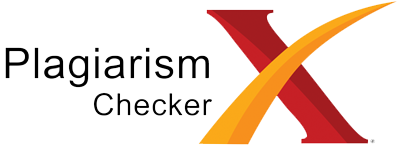Analisis Kemampuan Technological Content Knowledge (TCK) Pada Mahasiswa Program Studi Pendidikan Guru Sekolah Dasar
Abstract
Abstrak: Technological Content Knowledge (TCK) merupakan salah satu dari konsep TPACK yang merupakan konsep pengetahuan yang hadir untuk menjelaskan tiga komponen utama pengetahuan guru dan calon guru (konten, pedagogi, dan teknologi). TCK merupakan pengetahuan tentang bagaimana teknologi dan konten saling mempengaruhi. Guru dan calon guru perlu menciptakan multimedia dan memahami konsep di dalam konten dengan bantuan teknologi yang spesifik. Objek penelitian ini adalah mahasiswa semester 8 Program Studi Pendidikan Guru Sekolah Dasar (PGSD) Universitas Negeri Malang dengan jumlah responden 10 orang. Penelitian ini bertujuan untuk mengetahui kemampuan teknologi konten mahasiswa semester 8 Program Studi PGSD. Metode dalam penelitian ini menggunakan deskriptif kualitatif. Data dikumpulkan dari observasi, wawancara, dan dokumentasi. Berdasarkan data yang dianalisis, hasil menunjukkan bahwa kemampuan TCK mahasiswa PGSD sudah cukup baik dalam merancang multimedia, namun kemampuan dalam mengelola konten masih kurang.
Abstract: Technological Content Knowledge (TCK) is one of the TPACK frameworks which is the concepts of knowledge that emerge to describe three main components of in-service and pre-service teacher’s knowledge (content, pedagogy, and technology). TCK is an understanding of how content and technology influence one another. The in-service and pre-service teachers need to create multimedia and understand subject-matter learning with specific technologies. The objects of the research are 8th-semester college students of Elementary School Teacher Education (pre-service education) at the State University of Malang with 10 respondents. The purpose of this research was to understand their technological content knowledgeability. A descriptive method was implemented in this study. The data were collected through observation, interviews, and documentary. Based on the data analysis, the result showed that the subject’s TCK at Elementary School Teacher Education was good enough. But the ability to manage content was not good enough.
Keywords
Full Text:
PDFReferences
Abbitt, J.T. (2011). The Measuring Technological Pedagogical Content Knowledge in Pre-service Teacher Education. Journal of Research on Technology in Education, 43(4), 281-300.
Angeli & Valanides (2005). Preservice Elementary Teachers As Information and Communication Technology Designers: An Instructional Systems Design Model Based on An Expanded View of Pedagogical Content Knowledge. Journal of Computer Assisted Learning, 21, 292–302.
Becker, H. J. (1994). How Exemplary Computer-Using Teachers Differ from Other Teachers: Implications for Realizing The Potential of Computers in Schools. Journal of Research of Computing in Education, 26, 291-321.
Chai, C. S., Koh, J. H. L., & Tsai, C.C. (2010). Facilitating Preservice Teachers' Development of Technological, Pedagogical, and Content Knowledge (TPACK). Educational Technology & Society, 13 (4), 63–73.
Cox, S. (2008). A Conceptual Analysis Of Technological Pedagogical Content Knowledge. Unpublished doctoral dissertation. Provo, UT: Brigham Young University.
Cox, S., & Graham, C. R. (2009). Diagramming TPACK in Practice: Using and Elaborated Model of The TPACK Framework To Analyze and Depict Teacher Knowledge. TechTrends, 53(5), 60–69.
Doering, A. Hughes J. & Huffman D. (2003). Preservice Teachers: Are We Thinking with Technology?. Journal of Research on Technology in Education, 35(3), 342-361.
Graffin, J.D. (2003). Technology in the Teaching of Neuroscience: Enhanced Student Learning. Journal Advan Physiol Education, 27, 146-155.
Hidayati, N., Setyosari, P. & Soepriyanto, Y. (2019). Kompetensi Technological Pedagogical Content Knowledge (TPACK) Guru SOSHUM Setingkat SMA. Jurnal Kajian Teknologi Pendidikan, 1(4), 291–298.
Iding, M. Crosby, M.E, & Speitel, T. (2002). Teacher and Technology: Beliefs and Practices. International Journal of Instructional Media, 29(2), 153-170.
Jordan, K. & Dinh, H. (2012). TPACK: Trends in Current Research. ACEC2012: ITs Time Conference, 1-15.
Keengwe, J., Onchwari, G. & Onchwari J. (2009). Technology and Student Learning: Toward a Learner-Centered Teaching Model. Technology, 17(1), 11-12.
Koehler, M.J., Mishra, P., Kareluik, K., & Seob, S.T. (2014). The Technological Pedagogical Content Knowledge Framework. Handbook of Research on Educational Communication and Technology, 101-111.
Koehler, M. J., & Mishra, P. (2009). What is technological pedagogical content knowledge? Contemporary Issues in Technology and Teacher Education, 9(1), 60-70.
McCormick, R., & Scrimshaw, P. (2001). Information and communications technology, knowledge and pedagogy. Education, Communication, and Information, 1(1), 39–57.
Mishra, P., & Koehler, M. J. (2006). Technological pedagogical content knowledge: A framework for teacher knowledge. Teachers College Record, 108(6), 1017–1054.
Puspitarini, E.W. (2017). Analisa Technological Content Knowledge dengan Menggunakan Structural Equation Modeling. Seminar Nasional Teknologi Informasi, Komunikasi dan Aplikasinya, 04, 1-5.
Rahardjo, M. (2011). Metode Pengumpulan Data Penelitian Kualitatif. Online, repository.uin-malang.ac.id/1123/1/metode-pengumpulan.pdf. (diakses pada 06 Februari 2019).
Sagala, S. (2009). Kemampuan Profesional Guru dan Tenaga Kependidikan. Bandung: Alfabeta.
Schmidt, D. A., Baran, E., Thompson, A. D., Mishra, P., Koehler, M. J., & Shin, T. S. (2009). Technological Pedagogical Content Knowledge (TPACK) The Development and Validation of An Assessment Instrument for Preservice Teachers. Journal of Research on Technology in Education, 42(2), 123–149.
Schwarz, G. (2000). Renewing Teaching Through Media Literacy. Phi Delta Kappan, 37, 8-12.
Shulman, L.S. (1986). Those Who Understand: Knowledge Growth in Teaching. Educational Researcher, 67, 4-14.
Sianjina, R. R. (2000). Educational Technology and The Diverse Classroom. Phi Delta Kappan, 37, 26-28.
Swan, K. & Hofer, M. (2011). In Search of Technological Pedagogical Content Knowledge. Journal of Research on Technology in Education, 44(1), 75-98.
Toisuta, W., Soewadji, L., & Karo-Karo, I.U. (1979). Ilmu Keguruan Pendidikan Nasional. Jakarta: CV Kurnia Esa
Valtonen, T., Leppanen, U. Hyppla, M. & Sointu, E. (2019). Fresh Perspectives on TPACK: Pre-Service Teachers’ Own Appraisal of Their Challenging and Confident TPACK Areas. Education and Information Technologies.
Willis, E. M., & Sujo de Montes, L. (2002). Does Requiring A Technology Course in Preservice Teacher Education Affect Student Teacher's Technology Use in The Classroom? Journal of Computing in Teacher Education, 18(3), 76-80.
DOI: http://dx.doi.org/10.17977/um038v3i32020p251
Refbacks
- There are currently no refbacks.
Copyright (c) 2020 Zakiatul Fuada

This work is licensed under a Creative Commons Attribution-ShareAlike 4.0 International License.
JKTP: Jurnal Kajian Teknologi Pendidikan published by Department of Educational Technology, Faculty of Education, State University of Malang in Collaboration with Asosiasi Program Studi Teknologi Pendidikan Indonesia (APS TPI).
Publisher Address:
Lab. Teknologi Pendidikan, Gd.E2, Lt.1
Fakultas Ilmu Pendidikan Universitas Negeri Malang
Jl. Semarang 5, Kota Malang Email: jktp.fip@um.ac.id
========================================================================================================
| INDEXED BY | TOOLS | PLAGIARISM CHECK | ARTICLE TEMPLATE |
|
|

JKTP: Jurnal Kajian Teknologi Pendidikan is licensed under a Creative Commons Attribution-ShareAlike 4.0 International License.
JKTP Statistics (Since July 13th, 2020)






.png)












